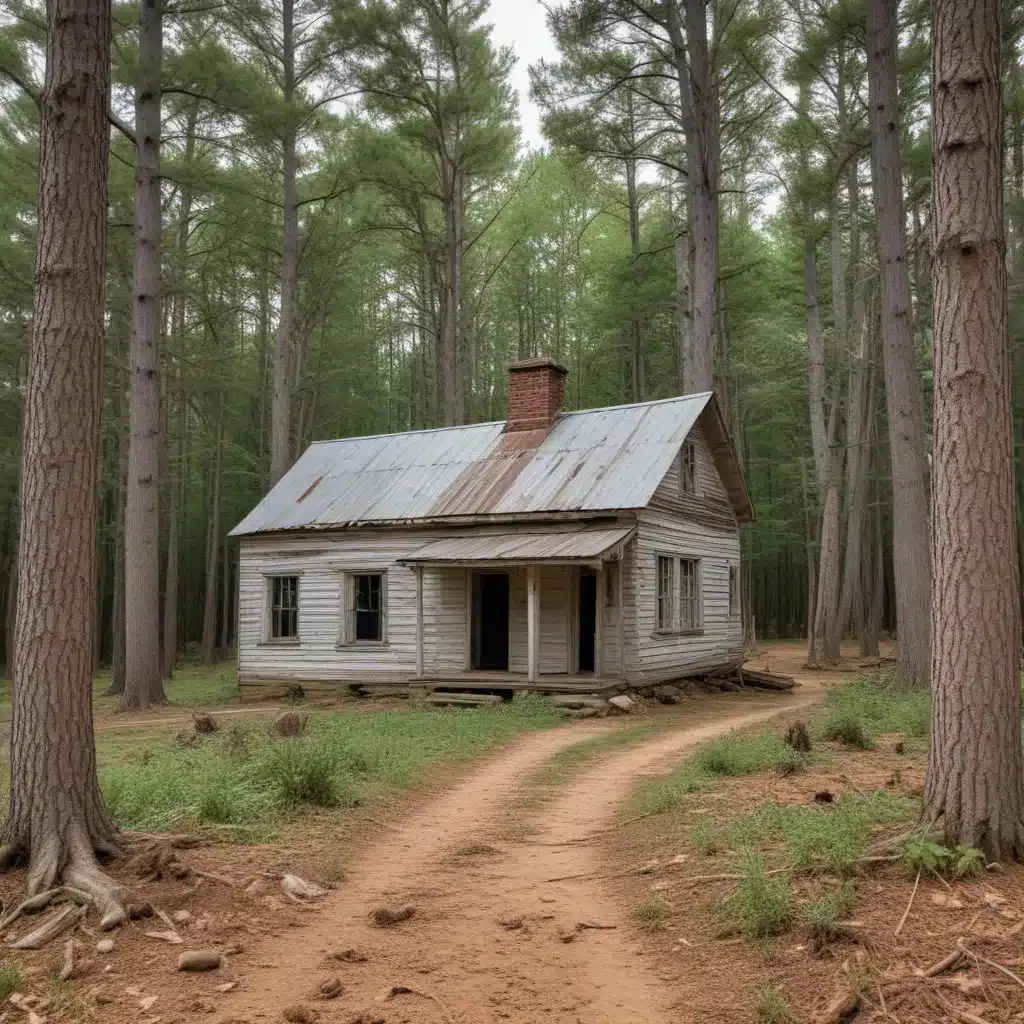
Nestled in the rolling hills and sprawling meadows of our region lies Crooked Pines Farm, a living testament to the rich agricultural heritage and resilient community spirit that have shaped this land for generations. As a farm educator, I’m honored to share the captivating stories and insights that lie within the weathered wooden fences, the centuries-old barns, and the fertile soil of this remarkable place.
Geographical Context
Crooked Pines Farm is situated in the heart of a picturesque valley, surrounded by the majestic Cascade Mountains that tower in the distance. The property’s gently sloping terrain is dotted with groves of towering pines, their twisted trunks and drooping boughs giving the farm its distinctive name. A winding, tree-lined creek meanders through the center of the land, its waters nourishing the diverse array of flora and fauna that call this place home.
Historical Significance
The roots of Crooked Pines Farm stretch back to the mid-19th century, when the first pioneering families settled in this remote corner of the West. These resilient homesteaders carved out a living from the rugged landscape, relying on a mix of subsistence farming, livestock rearing, and timber harvesting to sustain their communities. Over the decades, the farm evolved, passing through the hands of various owners and adapting to the changing needs and technologies of the times.
Uncovering Hidden Histories
As we’ve delved into the archives and spoken with longtime local residents, we’ve uncovered a wealth of fascinating stories that shed light on the farm’s rich history. In the attic of the main farmhouse, we discovered a trove of old photographs and handwritten journals that provide a vivid glimpse into the daily lives of the farm’s past inhabitants. From these archival treasures, we’ve learned about the trials and triumphs of running a family farm in the early 20th century, the challenges of weathering economic downturns and natural disasters, and the deep sense of community that has always been a cornerstone of life at Crooked Pines.
The Crooked Pines Farmstead
The main farmhouse, with its distinctive mix of Victorian and Craftsman architectural elements, serves as the heart of the Crooked Pines property. Meticulously restored and preserved, the home showcases the refined craftsmanship and attention to detail that were hallmarks of its era. Surrounding the farmhouse are a collection of historic outbuildings, including a towering red barn, a weather-beaten smokehouse, and a charming one-room schoolhouse that once served the local farming families.
Agricultural Practices
Over the decades, the land of Crooked Pines Farm has hosted a diverse array of agricultural endeavors. In the early years, the focus was on subsistence crops like wheat, corn, and potatoes, as well as the raising of dairy cows, chickens, and other livestock. As the 20th century progressed, the farm shifted toward more specialized commercial crops, such as orchard fruits, berry bushes, and heirloom vegetables, taking advantage of the region’s ideal growing conditions.
Today, the current owners of Crooked Pines continue to honor the farm’s rich heritage, employing a blend of traditional and modern sustainable farming practices. They utilize companion planting, cover cropping, and drip irrigation to nurture the soil and promote the health of their diverse crops. The farm also maintains a small herd of heritage-breed livestock, including heritage turkeys, Dexter cattle, and Icelandic sheep, which graze peacefully in the lush pastures.
Environmental Considerations
Beyond its agricultural pursuits, Crooked Pines Farm is renowned for its exceptional natural beauty and thriving ecological diversity. The property is home to a vast array of native plant and animal species, from the towering Ponderosa pines that give the farm its name to the elusive spotted owls that nest in the ancient tree hollows. In recent years, the owners have embarked on a series of restoration initiatives, working to enhance the health of the riparian zones, reintroduce native pollinator species, and protect the fragile habitats of endangered wildlife.
Cultural Narratives
Crooked Pines Farm has long been a hub of community life, serving as a gathering place for local residents and a source of inspiration for generations of artists, storytellers, and folklorists. The farm’s rich tapestry of legends and folklore has been passed down through the years, with tales of ghostly apparitions, hidden treasures, and the mischievous antics of local wildlife. These cultural narratives have become an integral part of the farm’s identity, connecting its history to the broader social and cultural fabric of the region.
Modern Preservation Efforts
In recent years, the current owners of Crooked Pines Farm have undertaken a concerted effort to preserve the property’s rich heritage and share its stories with the wider community. Through educational programs, farm tours, and hands-on workshops, visitors of all ages can immerse themselves in the rhythms and routines of daily farm life, learning about everything from seed starting and flower arranging to the importance of pollinators and regenerative agriculture.
The team at Crooked Pines Farm is also committed to restoration initiatives that honor the land’s past while preparing for a sustainable future. From revitalizing historic structures to implementing cutting-edge precision farming techniques, the stewards of this remarkable place are dedicated to ensuring that the Crooked Pines legacy continues to thrive for generations to come.
As you explore the winding paths and charming hideaways of Crooked Pines Farm, you’ll find yourself transported to a bygone era, where the rhythms of the seasons and the deep connection to the land are woven into the very fabric of daily life. Whether you’re a seasoned farmer, a nature enthusiast, or simply someone seeking to reconnect with the roots of our shared agricultural heritage, a visit to Crooked Pines promises to be a truly enriching and unforgettable experience.


